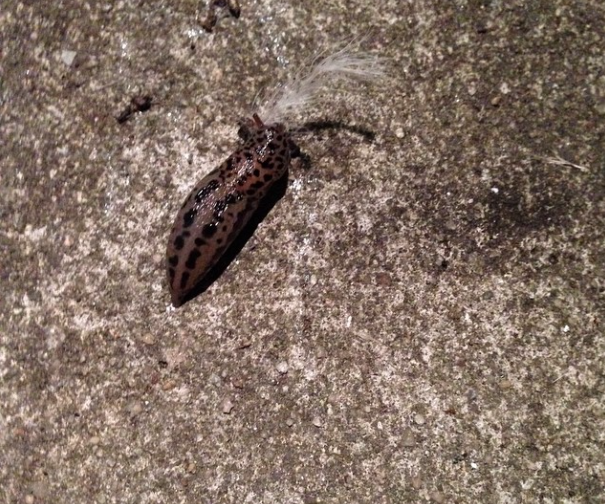The Symbiote

My mother, who had been dead for seven years by the time Zelda popped onto the planet, gave me the single best piece of parenting advice I have ever received: “Even babies need privacy sometimes.” At the time, my baby brother was happily playing in his crib, and I wanted to get him out to play with me. “Let him be,” she said. “He’ll want your attention soon enough. Babies learn things when they’re alone.”
The last time that I was truly alone was the day that I found out I was pregnant. Just for a minute, only I knew that I was going to have a child. Even a minute later, after my husband knew, not much changed. For months, carrying Zelda around felt like the greatest secret ever. I smiled to myself on the subway and in crowds. As Zelda grew, I felt myself becoming attached to her, even though I didn’t know anything about her yet. The first time I saw her face on a sonogram, I thought to myself, “Ah, there you are.” Being alone — “I” — suddenly meant something different than it had for the first thirty-five years of my life: It now meant “Zelda and I.”
This has its upsides. Though Zelda has, it seems, finally come to understand that we are separate beings, if I lie down on the floor she will still laugh hysterically and crawl over onto me, a little alien returning to its pod. She seems to instinctually feel at home with me — on top of me, drooling into my mouth. Physical proximity is not a question or an invitation; it is her place, her home. It would be an understatement to say that she is an extension of myself: She is a part of me grown whole, able to breathe and think for herself. We are both at our happiest together.
But not always. Newborn babies wake up screaming a lot of the time. It’s as if they go from a dead snore to full on alertness with no drowsy in between, and it’s arresting to anyone within a half a mile. But as Zelda crossed the two-month mark, now sleeping alone at night in her crib, she began to form the waking routine she follows to this day: Like I do. Slowly. Without a need to be bombarded, without a need for instant sustenance or care.
Rather than waking up crying, she began to wake up mumbling, laughing, and babbling to herself, smiling. I decided to allow her this time to herself, though my instinct was to rush to her. Even when I was excited to see her, I decided to let her be awake, just lying there, alone. At first, maybe just five minutes would pass before she began fussing and then crying, signalling that it was time to begin our day. As she learned to roll over, to grab her toes, to “talk” to herself, and then to sit up, the time lengthened. Now she is often awake and alone for half an hour or more before I go in to her.
I’ve learned the hard way how important that time truly has become for her. Occasionally I misinterpret the sounds. I hear her babbling and it has an insistent tone to it, I think. I go into the dark room, and there she is, cuddled tightly against the side of her crib, talking to herself, eyes still closed. She lifts her head, her heavy sleepy eyes blinking around, confused at my presence. It takes her sometimes a minute to get her bearings, and to smile at me, happy that I am there; I’ve interrupted her.
I know now from observing my daughter that she has acquired most of her basic skills while she is left alone, in the space of the early morning between waking and starting her day with me. I watched her struggle to roll over on the baby monitor. I watched her up on all fours, rocking back and forth ready to launch herself into a crawl. I have heard her mumbling to herself in her sleep: first, unintelligible sounds, then noises that are not words but that seem to be communications, but only with herself. She is figuring it out, and she is doing it, for a short period each morning, alone.
And of course at night, she is alone too. I read her book to her, and then lights off, I’m out, away for the night. Once she had the sleep training down, she was often asleep before I left the room, but these days, she sometimes quietly (or not so quietly) babbles herself into oblivion.
I get it. I need space too. Over time, Zelda and I have silently agreed to take more breaks from one another. At around five months old, after I hadn’t been away from her for more than an hour or two — and that long, only twice — she started to signal that for short periods she would rather be left alone. She began to seem mildly bored with me, craning her neck around to look for new faces at home and abroad. She wanted new things — other people, other scenarios — but also quieter ones, which didn’t always include me. I decided not to let her want of space sting me too much — to be proud of her and give her the independence she seemed to want.
In those spaces when we are not together, I think of her, but also, sometimes now, I allow myself to not think of her. I hope that sometimes, she doesn’t think of me. I’ll never be alone again, but it’s good to be by myself.
THE PARENT RAP is an endearing new column about the fucked up and cruel world of parenting.
